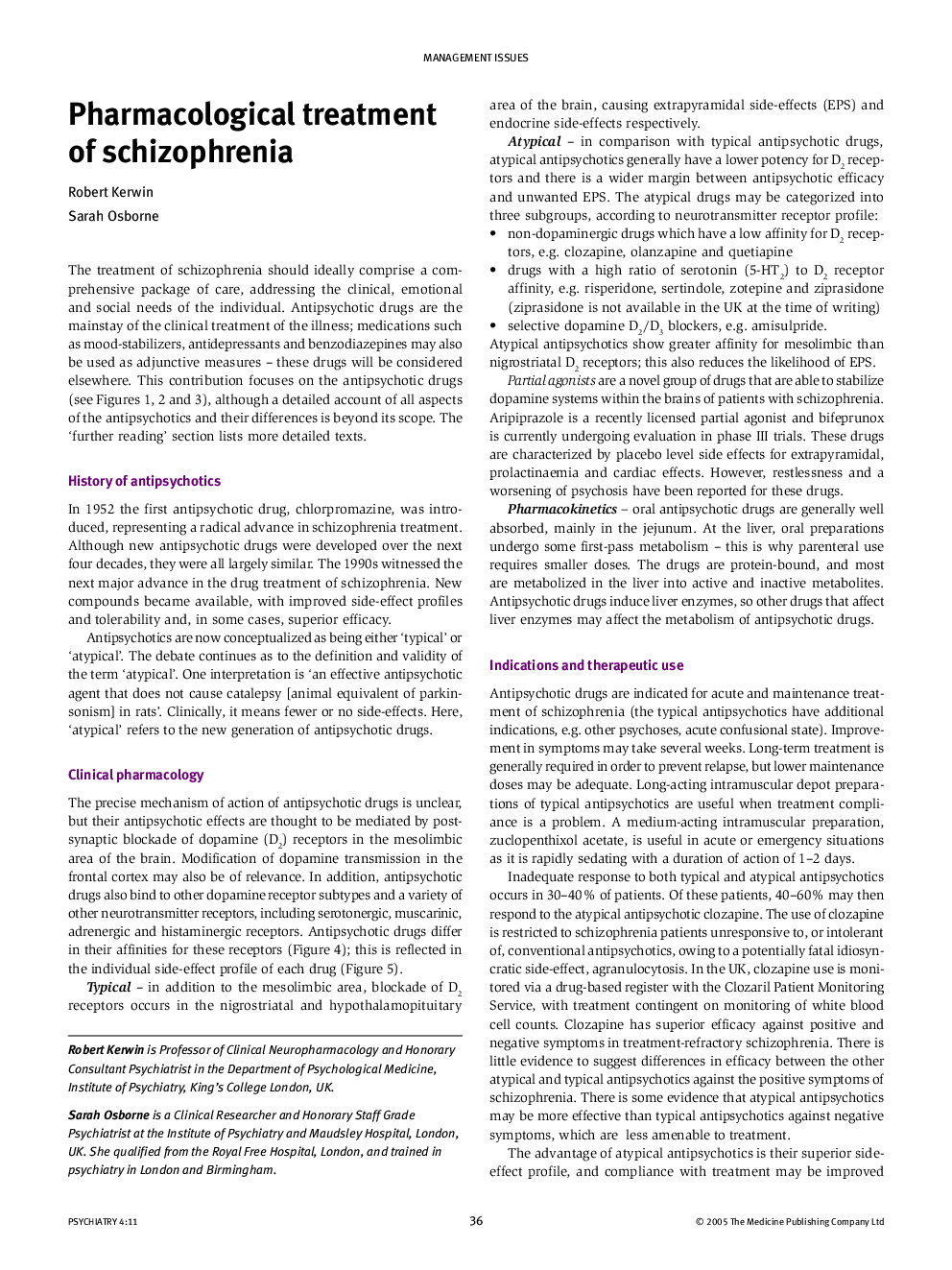| Article ID | Journal | Published Year | Pages | File Type |
|---|---|---|---|---|
| 9381763 | Psychiatry | 2005 | 4 Pages |
Abstract
Recently, the treatment of schizophrenia has been increasingly dominated by the use of second- and now third-generation antipsychotics. With the decline of the use of first generation (typical) antipsychotics, discussions about their mechanism of action seem esoteric. Treatment decisions in schizophrenia are now dominated by which atypical antipsychotic should be used. Most meta-analyses conclude that primary efficacy is not fundamentally different between atypical drugs. Therefore, clinical decision-making has to be made on the grounds of differential side-effect profiles. Weight gain is problematic for drugs such as olanzapine and clozapine, but clozapine is a special case because of its unique position in treatment resistant schizophrenia. Hyperprolactinaemia is a problem for those drugs such as risperidone and amisulpride which retain a high potency for D2 receptor blockade. QTc prolongation remains a deterrent for some drugs such as sertindole and ziprasidone. The latest generation of antipsychotics such as aripiprazole seem interesting in that they broadly have a placebo level side-effect profile.
Related Topics
Health Sciences
Medicine and Dentistry
Psychiatry and Mental Health
Authors
Robert Kerwin, Sarah Osborne,
